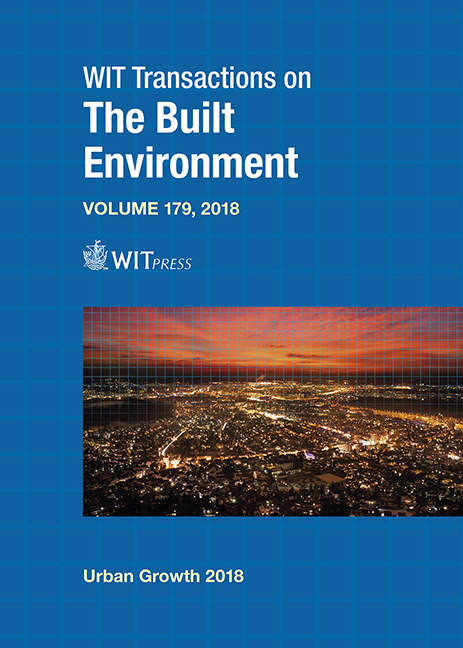URBAN PARK AND AGING PEOPLE IN CHINA: A NEW CHALLENGE FROM OLD PEOPLE’S “PARENTS BLIND DATE”
Price
Free (open access)
Transaction
Volume
179
Pages
10
Page Range
123 - 132
Published
2018
Size
730 kb
Paper DOI
10.2495/UG180121
Copyright
WIT Press
Author(s)
ANG LI, QIAOWEI YANG
Abstract
Older people are the fastest-growing age group in the world. What accompanies the trend of rapid population ageing is a sustained increase in urban population. To improve urban older people’s quality of life (QoL), World Health Organization (WHO) [1] proposed a framework of “Age-friendly Cities” and green space has been identified as one of the most important age-friendly features. The park is an important element in green space, and it provides a place for the older people of this specific group. However, a unique cultural phenomenon in China named “Parents blind date”, which means parents attend to the blind date like a marriage interview instead of their children who are single, has appeared in the social networking and activities of elderly in the park. This gradually evolved into a new form of activity setting up the place in the main area of park and has become the main purpose of part of the elderly going to the park. In this content, the park management and strategies are facing a dilemma: on one hand, the park becomes more age-friendly by providing spaces for older people’s “parents blind date”, but it may lead the potential risk of park management for assuring this group of older people’s “security”. On the other hand, the emerging activity is taking up public space increasingly in the park, most of the urban parks in China have been built. Therefore, urban planners need to reflect on how to transform and update the needs of the elderly to help existing Chinese urban parks to serve the elderly better.
Keywords
parents blind date, aging people, social participation, urban park, planning recommendations





